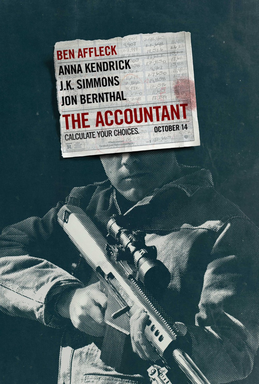1. The thing
that most defended cinephilia in 2016 was television! Crazy Ex-Girlfriend, Horace
and Pete, Vinyl, The Americans, Crisis in Six Scenes, Better
Call Saul, The Night Of, and – to
get beyond the USA for a moment – the grand, apocalyptic finale of the latest Black Mirror series from UK, not
forgetting The Kettering Incident, an
Australian series that had everything Australian movies usually lack: emotion,
melodrama, style, flair, daring.
 |
| La Captive, Chantal Akerman |
3. The other
visit was to the Portuguese Cinemateca in Lisbon. To build a bridge between
scholarly conferences and the usual brief introductions at screenings, the
Filmoteca now has an admirable series in which someone is invited to present ‘a
filmmaker in 5 films’ over the course of a week, taking the time needed to put
them in context and discuss them with the audience. I got to present Fritz
Lang, lucky me. My contact with the lively, intense cinephile culture of Lisbon
also resulted in a selection of 4 contemporary Portuguese films at the Museum
of Contemporary Art in Sydney during September, including the delightful,
ultra-hip teen movie John From (João
Nicolau), and A Woman’s Revenge (2012)
by one of the least known of the greatest living directors, Rita Azevedo Gomes.
 |
| A Woman’s Revenge (Rita Azevedo Gomes, Portugal, 2012) |
4. It has
become standard behaviour to gripe, at every possible opportunity, about the
‘death of film criticism’, the lack of serious venues for serious talk, the
rise of publicity, the endless and indistinguishable Internet drone of
information, etc, etc – but I have never seen the situation of criticism that
way. When people bemoan the ‘end of the public sphere’, it’s usually just the
same old bourgeois lament about the imminent demise of ‘quality’ newspapers,
ABC radio/TV, blablabla. But, in my opinion, the good stuff is always out
there: you just have to be curious enough to learn where to find it. So, just
one hint: recent Film Alert bulletins
have kept us up with the latest movement at the Austrian Filmmuseum, where
Michael Loebenstein (of the NFSA) has been appointed to replace Alexander
Horwath. Let’s hope Mr. Loebenstein keeps up the track record on publications
there, because to mark the start and end of 2016 the Filmmuseum gave us,
respectively, Ted Fendt’s superb anthology on Danièle Huillet & Jean-Marie
Straub, and the English translation of Alain Bergala’s brilliant The Cinema Hypothesis, an essay on
‘pedagogical transmission’ (but it’s racier than that sounds) which every film
teacher at any educational level must read.
5. There are
many international releases of the year that I haven’t caught up yet with in
any format – Arrival has hit
Barcelona cinemas, it’s calling me – but here have been some personal highlights:
Evolution (Lucile Hadzihalilovic). Another disquieting
gem of the ‘cinema of poetry’ from this director. Also caught up with her
impressive short, Nectar (2014).
Malgré la nuit (Philippe Grandrieux). Overlooked,
under-screened, and shamefully treated by critics who should know better.
11 Minutes (Jerzy Skolimowski). Such filmmaking energy!
This movie is a total blast.
Certain Women (Kelly Reichardt). Low-key, haunting,
Hellmanesque character-in-society study.
Knight of Cups (Terrence Malick). After the (to me)
incoherent To the Wonder, I found
this a poignant, expressive, beautifully structured work.
The Neon Demon (Nicolas Winding Refn). It unravelled by the
end, but there were some strong sequences, ingenious stylisation, and about a
million light years of improvement after Only
God Forgives.
45 Years (Andrew Haigh). All proportions kept, this had
a touch of Pialat about it. And what great performances from Tom Courtenay and Charlotte
Rampling.
The Was (Soda_Jerk). Absolutely hypnotic digital video
piece by this Australian sister duo (with soundtrack by The Avalanches), bringing
together Charlize Theron in Monster
with the skater kids of Larry Clark’s Wassup
Rockers, Jean-Luc Godard with Edward Scissorhands, Cheech & Chong with
Todd Haynes’ Velvet Goldmine. See it,
over and over On this Vimeo link
Editor's Note: My grateful thanks to Adrian for taking the time and trouble to send in this formidable compendium of cinephile activity in the past year. Adrian's latest book is now on sale.
Contributions to this series are welcome throughout December and the holiday season. Send them to filmalert101@gmail.com





